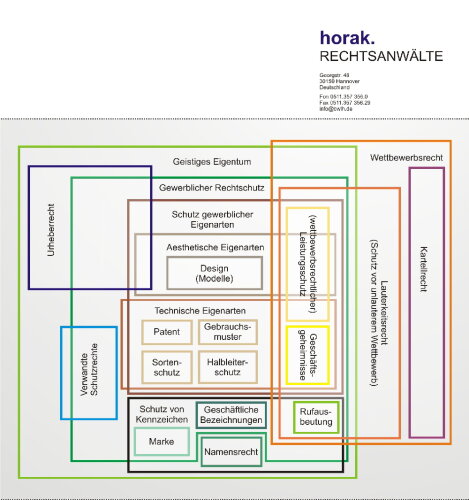Best General Litigation Lawyers in Hanover
Share your needs with us, get contacted by law firms.
Free. Takes 2 min.
List of the best lawyers in Hanover, Germany
About Litigation Law in Hanover, Germany
Litigation in Hanover, Germany, involves the process of resolving disputes through the courts, whether civil, commercial, or administrative. The German legal system operates under a civil law tradition, relying on comprehensive written statutes rather than precedent. Litigation in Hanover means presenting your case before local courts (Amtsgericht or Landgericht), following structured procedures and strict timelines. Legal representation is often necessary, especially in complex matters, and proceedings are typically conducted in German. Hanover, as the capital of Lower Saxony, has well-established courts and a range of legal professionals who can assist with litigation matters.
Why You May Need a Lawyer
Legal disputes can arise unexpectedly in personal, business, or administrative contexts. Common situations requiring legal help in litigation in Hanover include:
- Contract disputes between businesses or private parties
- Employment terminations, wage disputes, or workplace issues
- Real estate conflicts involving landlords, tenants, or property boundaries
- Inheritance and family disputes
- Consumer protection and product liability issues
- Claims for damages or compensation (tort law)
- Opposing administrative decisions made by local authorities
- Debt collection and enforcement actions
- Trademark, patent, or copyright infringements
- Challenging fines or penalties issued by governmental agencies
Navigating these matters without legal experience is challenging due to procedural rules, language barriers, and the need to present evidence effectively. A lawyer can help protect your rights, increase your chances of a favorable outcome, and ensure deadlines or formalities are not missed.
Local Laws Overview
Litigation in Hanover is governed by German federal laws, primarily the Civil Procedure Code (Zivilprozessordnung, ZPO) for civil cases, as well as special local rules in Lower Saxony. Here are some key aspects relevant to local litigation:
- Jurisdiction: The court responsible depends on the type and value of the dispute. The Hanover District Court (Amtsgericht Hannover) generally hears cases up to €5,000, while the Hanover Regional Court (Landgericht Hannover) handles higher-value or more serious cases.
- Language: Proceedings are conducted in German. Foreign parties often require certified translations and, in some cases, interpreters.
- Legal Representation: For most civil cases above €5,000 and all proceedings before the Landgericht, parties are required to be represented by a licensed German attorney (Rechtsanwalt).
- Costs: Litigation costs include court fees, lawyer fees, and expenses for witnesses or experts. The losing party generally pays most of the costs, but there are exceptions.
- Alternative Dispute Resolution: Courts often encourage mediation or settlement discussions before or during litigation to resolve disputes more efficiently.
- Deadlines and Limitations: Strict limitation periods apply, depending on the type of case. Missing a deadline can mean losing the right to sue or defend yourself.
- Appeals: Decisions by local courts can usually be appealed to higher courts within a set timeframe.
- Enforcement: German law provides efficient mechanisms for enforcing judgments, including garnishment and property seizure.
Frequently Asked Questions
What types of cases do courts in Hanover hear?
Courts in Hanover handle a wide range of cases, including civil disputes (contracts, torts, real estate), family matters (divorce, custody), employment disputes, commercial litigation, and some administrative law cases.
Do I need a lawyer to go to court in Hanover?
For most cases above €5,000 or for proceedings before the regional court (Landgericht), legal representation by a German-qualified lawyer is mandatory. For minor disputes, you may represent yourself, but legal expertise is advisable.
How long does litigation usually take in Hanover?
The duration varies depending on the complexity of the case, court workload, and willingness of parties to settle. Simple cases may be resolved in a few months, while complex ones can take a year or longer.
Are court proceedings public in Hanover?
Yes, most court hearings are open to the public, except in sensitive cases (such as family or juvenile matters) where privacy is required.
What are the costs involved in initiating litigation?
Costs include court fees (set by law, usually based on the value of the dispute), lawyer fees, and costs for evidence or witnesses. Legal insurance may cover some of these expenses.
What happens if I lose my case?
Usually, the losing party must pay the court fees and a large portion of the winning side’s legal fees. However, exceptions can apply; your lawyer can explain the cost risks.
Can I appeal a court decision in Hanover?
Yes, you may appeal most decisions. The appeal must be filed within a specified deadline, usually one month from the judgment. The appellate court will review your case based on written submissions and hearings.
How do I find a suitable lawyer in Hanover?
You can search the bar association’s directory (Rechtsanwaltskammer Celle), ask for recommendations, or use online platforms to find a lawyer specializing in your type of dispute and experienced in Hanover courts.
Do German courts require documents in German?
Yes, all court documents must be submitted in German. Certified translations will be necessary for foreign-language documents, and you may need an interpreter for hearings if you do not speak German.
Is alternative dispute resolution (ADR) available in Hanover?
Yes, ADR options such as mediation and arbitration are encouraged and sometimes required before litigation. Many parties find these methods quicker and less expensive than court proceedings.
Additional Resources
If you need more support or information about litigation in Hanover, consider reaching out to these local resources:
- Hanover District Court (Amtsgericht Hannover): Handles civil, criminal, and family law cases; provides guidance on procedures.
- Hanover Regional Court (Landgericht Hannover): Deals with complex and higher-value cases.
- Bar Association of Celle (Rechtsanwaltskammer Celle): Responsible for licensing and regulating lawyers in Hanover; offers a lawyer search service.
- Consumer Protection Center Lower Saxony (Verbraucherzentrale Niedersachsen): Helps with consumer rights and can mediate disputes.
- Legal Advice Centers (Rechtsberatungsstellen): Provide low-cost or free initial advice for specific groups (e.g., those with low income).
- Mediation Services: Several local organizations and lawyers offer professional mediation for civil and commercial disputes.
Next Steps
If you find yourself involved in a legal dispute in Hanover or anticipate needing to start litigation, here are steps you can take:
- Assess your situation: Gather all relevant documents, correspondence, and evidence related to your dispute.
- Seek initial advice: Consult a lawyer to understand your rights, obligations, potential costs, and the best way forward. Many lawyers offer a preliminary consultation for a modest fee.
- Consider alternative resolution: Explore mediation or negotiation before starting formal proceedings to save time and money.
- Prepare for court: If litigation is unavoidable, ensure all documents are in order and your lawyer has all necessary information.
- Keep communication open: Maintain clear communication with your lawyer and respond quickly to their requests or advice.
- Monitor deadlines: Adhere to all timelines for objections, appeals, or evidence submissions, as missing deadlines can limit your legal options.
- Use local resources: Contact legal assistance organizations or advice centers if you need further support or have questions about the process.
Facing litigation can be daunting, but with proper guidance and assistance, you can protect your interests and navigate the legal process more effectively in Hanover, Germany.
Lawzana helps you find the best lawyers and law firms in Hanover through a curated and pre-screened list of qualified legal professionals. Our platform offers rankings and detailed profiles of attorneys and law firms, allowing you to compare based on practice areas, including General Litigation, experience, and client feedback.
Each profile includes a description of the firm's areas of practice, client reviews, team members and partners, year of establishment, spoken languages, office locations, contact information, social media presence, and any published articles or resources. Most firms on our platform speak English and are experienced in both local and international legal matters.
Get a quote from top-rated law firms in Hanover, Germany — quickly, securely, and without unnecessary hassle.
Disclaimer:
The information provided on this page is for general informational purposes only and does not constitute legal advice. While we strive to ensure the accuracy and relevance of the content, legal information may change over time, and interpretations of the law can vary. You should always consult with a qualified legal professional for advice specific to your situation.
We disclaim all liability for actions taken or not taken based on the content of this page. If you believe any information is incorrect or outdated, please contact us, and we will review and update it where appropriate.









